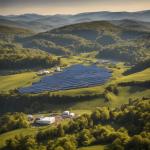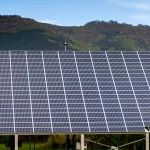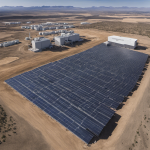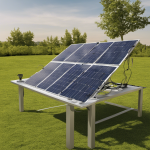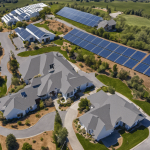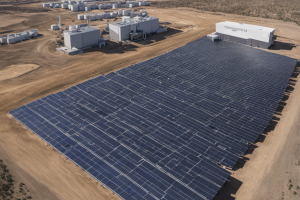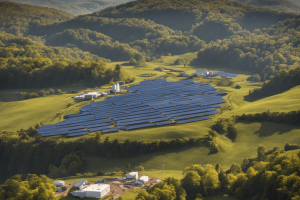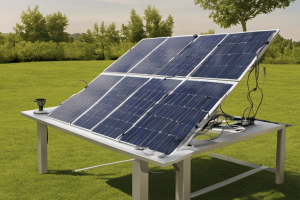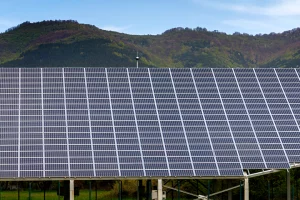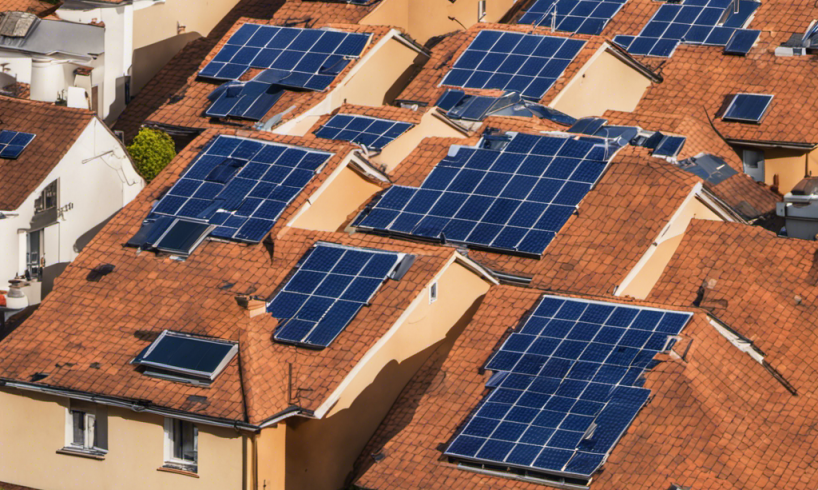
Advances in solar technology make it economically viable for many freestanding homes to generate their energy.
A new study conducted by researchers from the Karlsruhe Institute of Technology in Germany has revealed that more than 30 million homes in Europe could meet all their energy needs using rooftop solar panels alone. The study found that over 50 percent of Europe's 41 million freestanding homes could have been self-sufficient in 2020 using only solar energy and batteries, with this figure expected to rise to 75 percent by 2050. The falling costs of solar panels and advances in solar technology are making it economically viable for some of these homes to abandon the electrical grid altogether in the coming decades.
The Rise of Self-Sufficient Homes
Advances in solar technology have significantly reduced the cost of solar panels, with the price of solar power dropping by nearly 90 percent over the last decade. This decrease in cost has made it more feasible for homeowners to generate their energy using rooftop solar panels. The study conducted by the Karlsruhe Institute of Technology found that by 2050, it could be economically viable for two million European single-family homes to abandon the electrical grid and become fully self-sufficient.
The Economics of Self-Sufficiency
While it may seem logical for households to completely abandon the grid if they can generate their energy, the researchers suggest that it would be more efficient for families to remain connected and feed excess energy back to other users during overproduction. This approach would be more beneficial at a macroeconomic scale, ensuring the electrical grid remains stable and efficient. Lead researcher Max Kleinebrahm explains that even in 2050, going off-grid won't be the most economical choice, but investing in self-sufficient buildings could be worthwhile for those willing to pay more for self-sufficiency.
The Role of Solar PV in the Global Energy Mix
The falling costs of solar panels and the increasing efficiency of solar technology have significant implications for the global energy mix. A separate study by researchers at the University of Exeter and University College London predicts that solar energy will become the world's leading power source within three decades. The study suggests that solar PV will dominate the global energy mix by the middle of this century, rendering fossil fuel-dominated projections unrealistic. Positive feedback and the continuous progress of renewable energy technologies drive this irreversible tipping point in adopting solar energy.
Environmental Benefits and Climate Change Mitigation
The widespread adoption of rooftop solar panels and the move towards self-sufficient homes have significant environmental benefits. Solar energy is a clean and renewable energy source that produces no greenhouse gas emissions during operation. By generating their energy, homeowners can reduce their reliance on fossil fuels and contribute to mitigating the effects of climate change. The transition to solar energy also reduces dependence on finite resources such as coal, oil, and natural gas, which have detrimental environmental and health impacts.
The Future of Energy Self-Sufficiency
The findings of the study conducted by the Karlsruhe Institute of Technology highlight the potential for widespread energy self-sufficiency in Europe. As the cost of solar panels continues to decrease and solar technology becomes more efficient, more homes will be able to generate their energy. However, the researchers emphasize the importance of maintaining a connected electrical grid to ensure stability and efficiency at a larger scale. The transition to self-sufficiency should be seen as a complementary approach rather than a complete abandonment of the grid.
The research conducted by the Karlsruhe Institute of Technology reveals the immense potential for energy self-sufficiency in Europe through rooftop solar panels. With over 30 million homes capable of meeting their energy needs through solar and battery technology, the future of energy generation looks promising. As the cost of solar panels continues to fall and solar technology advances, more homes will be able to become self-sufficient. However, it is crucial to maintain a connected grid to ensure stability and efficiency on a larger scale. The transition to self-sufficiency should be seen as a valuable complement to the existing energy infrastructure, contributing to a more sustainable and resilient energy system.

James Smith is our editor. He is an accomplished and versatile news writer with over a decade of experience covering a wide range of topics, including politics, business, and real estate. Throughout his career, James has been dedicated to uncovering the truth and presenting unbiased, factual reporting to his audience.


